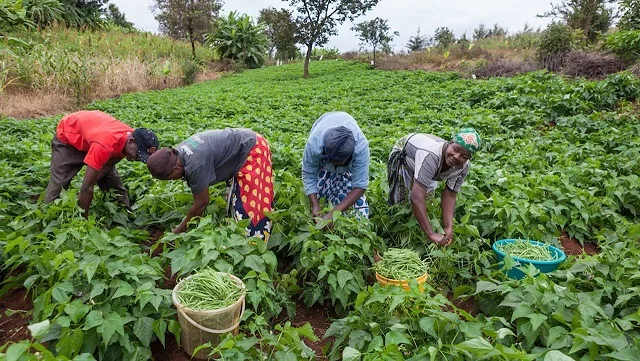The minister further said that arrangements were also at advanced stage for dry season farming of rice, maize and other horticultural crops.
“The most pressing actions we are currently handling is preparation for the next dry-season farming beginning from November 2023,” he said.
He said that the ministry would hold the National Agriculture and Food Security Summit in November, to bring all stakeholders together for development of National Action Plan for Food Security.
Prof. Joseph Utse, the Minister of Water Resources and Sanitation, said the Federal Government would cultivate 500,000 hectares of irrigable land for dry season farming as part of efforts to boost food security in the country.
Utse called for the cooperation of state governments and communities to make land available to the 12 basin authorities across the federation, to boost food production.
At the sub-national levels, conscious efforts are also underway.
Some state governments have taken up the challenge of boosting food sufficiency through dry season farming.
Consequently, Alhaji Musa Bosso, the Commissioner for Agriculture and Rural Development in Niger, said that the state government would mobilise 250,000 farmers to engage in mechanised agriculture during the upcoming dry season.
He said it would be done under the government policy of allocating 10,000 hectares of land to farmers in each of the 25 local government areas of the state for wet and dry season farming.
“This is another way of increasing food production; creating jobs and wealth among our people; which will also ensure food security for the state and the nation,’’ he said.
According to him, the ministry is ready for the upcoming dry season farming, adding that the ministry has been selling improved seeds, pesticides, herbicides and fertiliser to farmers.
Bosso also said the government planned to utilise water from Kainji, Shiroro, Jebba and Zungeru hydro dams for dry season farming.
Dry season farming comes with lots of challenges and same state government says they are working out logistics to address them.
In Borno, Governor Babagana Zulum has deployed 313 tractors to assist farmers in rural areas across the state alongside 100 trucks of fertiliser, sold at a subsidised rate of 25 per cent discount.
Zulum also announced the procurement of 471 ploughs and harrows to be used by the tractors for all-season farming.
The governor said the 313 tractors deployed under the system – one each to the 313 wards in the state – would be rendering free services to farmers who, however, would contribute in fueling them.
In Yobe, the future even looks more promising.
The state’s commissioner for agriculture, Alhaji Ali Mustapha, said the government had provided 3,000 metric tonnes of fertilisers and agro chemicals for irrigation farming.
“We distributed up to 3,000 metric tonnes in Bursari, Bade, Jakusko, Fika, Gulani and Geidam local government areas.
“This is the initiative of Governor Mai Mala Buni to provide necessary materials for irrigation farming to areas designed for the scheme,” he said.
In Adamawa, the commissioner for agriculture, Prof. David Jatau, said the government was committed to irrigation farming, considering the delay in rainfall recorded this rainy season and the latest flood caused by released of excess water from Lagdo Dam which affected farmlands.
“The only option left to us now is to take advantage of the opportunity given by government to support dry-season farmers with inputs, including seeds, fertilisers and agro chemicals at subsidised rates,” he said.
Jatau urged the people to key into dry- season farming, particularly rice, wheat and maize productions.
Deserving no less attention, Mrs Adegbemisola Fayoyin, the Permanent Secretary of Osun Ministry of Agriculture and Food Security, said the state would soon commence distribution of seedlings, fertilisers and other inputs ahead of dry season farming.
Fayoyin said the state government had started making preparations for dry season farming and would roll out plans immediately after the rainy season.
“We are waiting for a nod from the state government in the areas of funds and other logistics for the dry season farming.
“We are also waiting for the rainy season to end so that we can commence full preparation for the dry season farming.
“The ministry is also awaiting some support from the state government in the area of funds so we can hit the ground running.
“Our targets are mostly poor women farmers; we want them to get seedlings and other farm inputs for dry season farming,” she said.
More so, in Ekiti, Gov. Biodun Oyebanji recently disclosed his government’s plans to improve agricultural productivity through provision of improved seed and seedlings, fertiliser and enhanced extension services to guarantee food security in the state.
Oyebanji said the plans also included expansion of rural and feeder roads to boost the distribution of agricultural produce to both existing and new markets, and to deepen agricultural value-chain.
Mr Abayomi Monilari, President, Ondo State Farmers Congress, said that it had become imperative for all farmers in the state to prepare themselves for the dry season rather than relying on the government.
Stakeholders are of the view that ramping up dry season farming will bridge the gap between food supply and demand; and in multiplier effect, force down the prices of food. NAN





